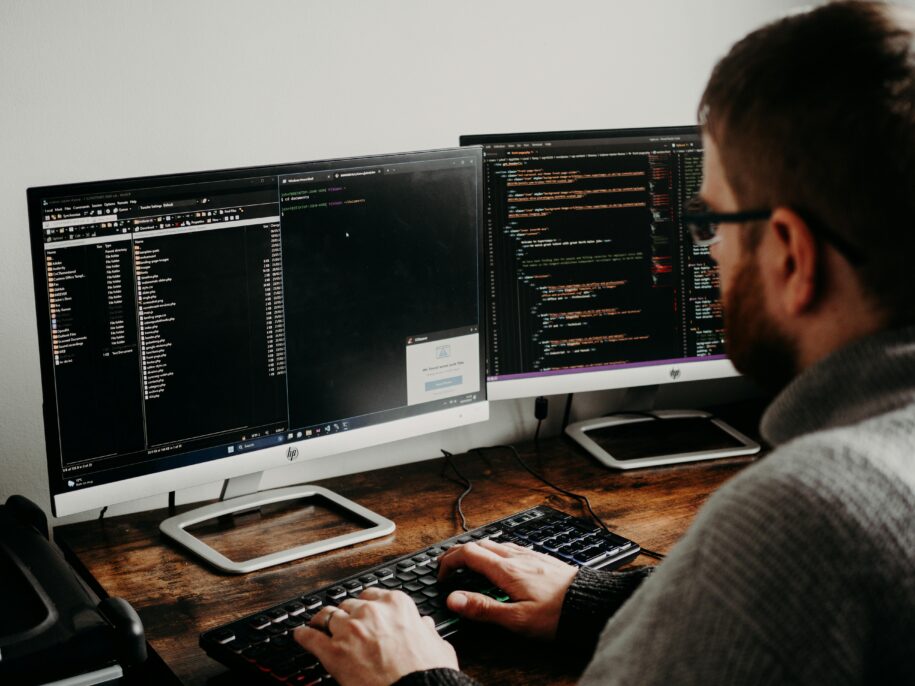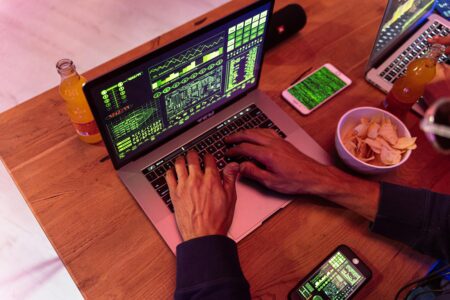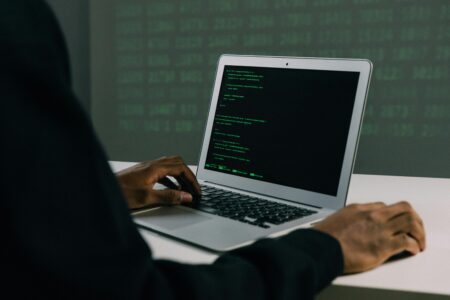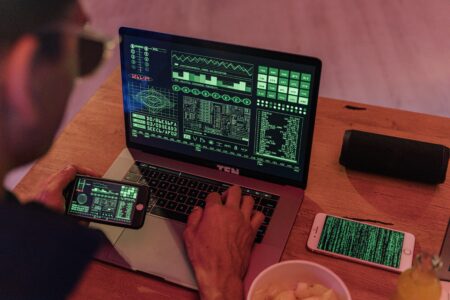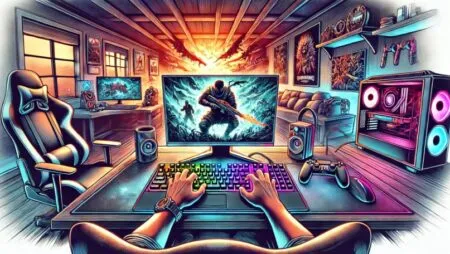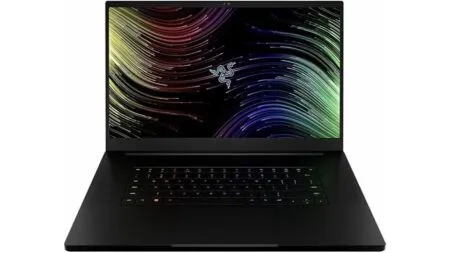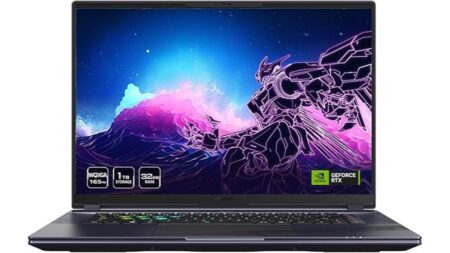Hey, tech enthusiasts! Ever wondered whether a PC or a laptop is safer when it comes to being hacked? It’s a common question, especially in today’s world where cybersecurity is more important than ever. As someone who loves gaming rigs and sleek laptops, I’ve done some digging to find the answer for you. Let’s explore whether PCs or laptops offer better security against hackers and what you can do to protect your devices.
Quick Overview Table: Comparing PCs and Laptops for Hacking Safety
| Factor | PC | Laptop |
|---|---|---|
| Portability | Low (usually stationary) | High (easily carried around) |
| Physical Security | Easier to secure (limited movement) | Higher risk of theft or loss |
| Built-in Hardware | No default webcam/mic on most setups | Usually comes with webcam/mic |
| Internet Connectivity | Can be wired for added security | Often relies on Wi-Fi |
| Software Vulnerabilities | Similar to laptops | Similar to PCs |
| Customization | High (custom security setups possible) | Limited customization |
| Risk from Public Use | Minimal (used mostly at home/work) | Higher (used in public areas often) |
Why PCs Might Be Safer Than Laptops
PCs (desktop computers) have a few key advantages when it comes to security. Let’s break them down:
1. Limited Portability
One of the biggest advantages of a PC is that it’s not portable. Since PCs are usually stationary, they’re less likely to be stolen or lost compared to laptops. Hackers often gain access to devices through physical theft, making PCs inherently safer in this regard.
2. No Built-In Webcam or Microphone
Many desktop setups don’t come with built-in webcams or microphones. This eliminates a major vulnerability that hackers often exploit. Even if you have external peripherals, you can simply unplug them when not in use, adding an extra layer of security.
3. Customizable Hardware and Software
PCs are highly customizable. You can:
- Install advanced firewalls and antivirus software.
- Use multiple storage drives to isolate sensitive data.
- Choose wired internet connections, which are more secure than Wi-Fi.
4. Home/Work Use Only
Since PCs are typically used in fixed locations like homes or offices, they are less exposed to risks like unsecured public Wi-Fi or unfamiliar networks.
Why Laptops Could Be Riskier
While laptops are fantastic for portability and convenience, they come with a few security drawbacks:
1. Higher Risk of Physical Theft
Laptops are designed to be portable, which means they’re often carried around in backpacks or bags. This makes them easier targets for thieves. Once stolen, your personal or work data is at risk.
2. Always-On Hardware
Most laptops come with built-in webcams, microphones, and wireless connectivity. If not properly secured, these can be exploited by hackers for spying or stealing data.
3. Reliance on Public Wi-Fi
Laptops are frequently used in public places like cafes, libraries, and airports. Public Wi-Fi networks are notorious for being vulnerable to man-in-the-middle attacks, where hackers intercept your data.
4. Limited Customization
Unlike PCs, laptops have limited options for hardware upgrades or customization. This means you’re often stuck with whatever security features the manufacturer provides unless you invest in external tools or software.
Key Security Tips for PCs and Laptops
Whether you use a PC or a laptop, following good cybersecurity practices is essential. Here’s what you can do:
For PCs:
- Use a Wired Internet Connection: Ethernet connections are generally more secure than Wi-Fi.
- Disable Unused Ports: Hackers can exploit open USB or Ethernet ports.
- Physically Secure Your PC: Use locks or set it up in a secure room.
- Install a Webcam Cover: If you use an external webcam, cover it when not in use.
For Laptops:
- Encrypt Your Drive: Tools like BitLocker (Windows) or FileVault (Mac) can protect your data if your laptop is stolen.
- Avoid Public Wi-Fi: Use a mobile hotspot or VPN to stay secure on the go.
- Enable Biometric Security: Use fingerprint or facial recognition for an extra layer of protection.
- Keep It Updated: Regularly update your OS and software to patch vulnerabilities.
Which is Better for Cybersecurity Tasks?
If you’re into cybersecurity or ethical hacking, both PCs and laptops can be excellent choices, depending on your setup:
- For Learning and Practicing: A laptop is more versatile. You can take it to meetups, workshops, or conferences.
- For Serious Work: A PC’s customizability and stability make it ideal for running multiple virtual machines (VMs) and tools like Metasploit or Wireshark.
FAQs: Are PCs Safer Than Laptops?
Q1: Can I make my laptop as secure as a PC?
Yes, with the right tools and practices, you can significantly improve a laptop’s security. Use encryption, VPNs, and physical locks to mitigate risks.
Q2: Do hackers prefer attacking laptops over PCs?
Hackers target vulnerabilities, not specific devices. However, laptops may be more frequently targeted due to their use in public networks.
Q3: Are gaming PCs or laptops more secure?
Gaming systems are no more secure than regular devices unless you actively secure them. However, their powerful hardware can help run advanced security tools.
Q4: What’s safer for storing sensitive data?
A PC with multiple drives and strong encryption is safer for storing sensitive data than a portable laptop.
Final Verdict: PC or Laptop for Security?
So, are PCs safer than laptops? The answer depends on how you use them:
- PCs: Better for fixed locations with controlled environments. They’re harder to steal and can be customized for advanced security.
- Laptops: Riskier due to portability and reliance on Wi-Fi, but they can be secured with the right tools and practices.
At the end of the day, the safety of your device—whether it’s a PC or a laptop—depends on you. Stay vigilant, follow cybersecurity best practices, and invest in tools that enhance your digital security.
Got any tips or experiences to share? Drop them in the comments below. Until next time, stay safe and game on!
Read More : Can a Laptop Camera Be Hacked? Here’s What You Need to Know

